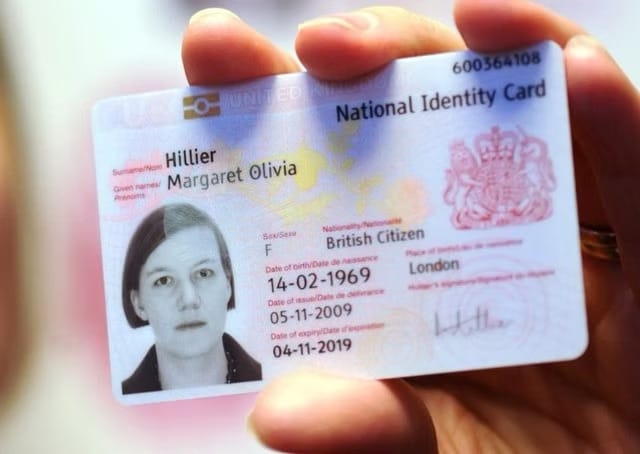i think there is something to the British national character that resists the idea of a national ID card system

okay, for context: Keir Starmer recently announced a "BritCard" system, which would be good for reporting potholes & being mean to immigrants
and, like, those arguments for an ID card are not designed to appeal to me. but we have had this discussion before, and so i have some kind of a sense of the arguments for an ID card. as i recall, when people say ID card, they actually mean at least two distinct things:
- a physical card that you can carry around, which has your picture on it and can tell people you are who you say you are, and how old you are etc. maybe it's compulsory to carry this around if you leave the house?
- a government database which has some kind of unique identifier for all the people resident in the country, and which all the other government databases can use when they want to refer to a person
and the arguments for and against the two are quite different
now as a trans person existing at the present time, i have a particular feeling about both of these, which is fear. for the physical card, if it has a gender marker on it then we now have an angle for bigots to ask people who have a non-gender conforming appearance for proof that they really are the gender they're claiming to be. seems bad? and the database part, well, i can't imagine that in the current climate they're going to introduce a new authoritative system with an easy and relaxed attitude to changing your gender marker. also seems bad.
anyway, this isn't what i came here to talk about. instead, as presaged by the title, i had a thought about the British national character[1] and why it might resist one of these two parts. no, i'm not going to claim that we have an instinctive resistance to tyranny. we love asking people for their papers. it's instead about the database bit, and the plan to make it simpler.
it's my feeling that a British person, confronted with a system with a long and complicated history, and different parts working a little bit at cross purposes to each other, and odd wrinkles that happened by chance that have now become load bearing, and that is clearly not quite fit for the purpose it has been put to... well, they might take a kind of perverse delight in seeing it? some people would see this and go "well, this needs cleaning up"... but there's something in a particular British mind which is like: how can i lean into the contradictions. how can i make this worse.
i think about the way that railway ticketing works. i don't actually understand how railway ticketing works. but i do understand that in the UK, it is possible for a regular ticket for a train between A and B, passing through station C, to be more expensive than the sum of a ticket between A and C and a ticket between C and B. and that both would be valid on the route, even if you don't actually get off the train. it's called split ticketing, and many of the ticket booking apps will automatically do this for you. i look at this situation and i know that it is bad and that a system without these problems would be better, and yet there is a part of me that goes "oh, how glorious! i wonder if there are other treasures to find in the ticketing regulations"
and even when these things personally inconvenience me, like when HMRC and Companies House had different ideas about the dormancy status of the company i work under -- there's still something in me that enjoys the mess of it all. the perversity. and that part feels British?
sidebar here to note that the thing about complicated situations is that they require complicated solutions. and that it is hard to tell what complexity is essential and what is incidental when confronted with a running system. people of all nationalities preserve messy contradictory systems when they encounter them, because sweeping them away forcefully and instinctually very quickly leads you to disaster. but! if you want to read too much into it, then i would note that the truths in this paragraph belong to the area of study called "cybernetics" and one of the main theorists of cybernetics, especially when applied to human systems, was a guy called Stafford Beer, who was British. so his drive to look at complicated messy systems with a kind of affectionate interest could also be chalked up in part to this same British tendency.
anyway – this part of the British national character, it looks at the idea of instituting an ID card database, sweeping away all the glorious complexity of the previous systems, the bit where your passport, your doctor, your local council and your library can all have quite different ideas as to what your name, address and gender are and yet occasionally still connect between them... and it sees the potential for beauty to be swept away.
btw i liked this post on the ID card thing:

[1] i'm running with this as if the idea of a national character is a real thing. i mean it clearly is. but also it's very much one of these "the difference within groups is larger than the difference between groups" type of thing. don't take it too seriously, you know?

Member discussion